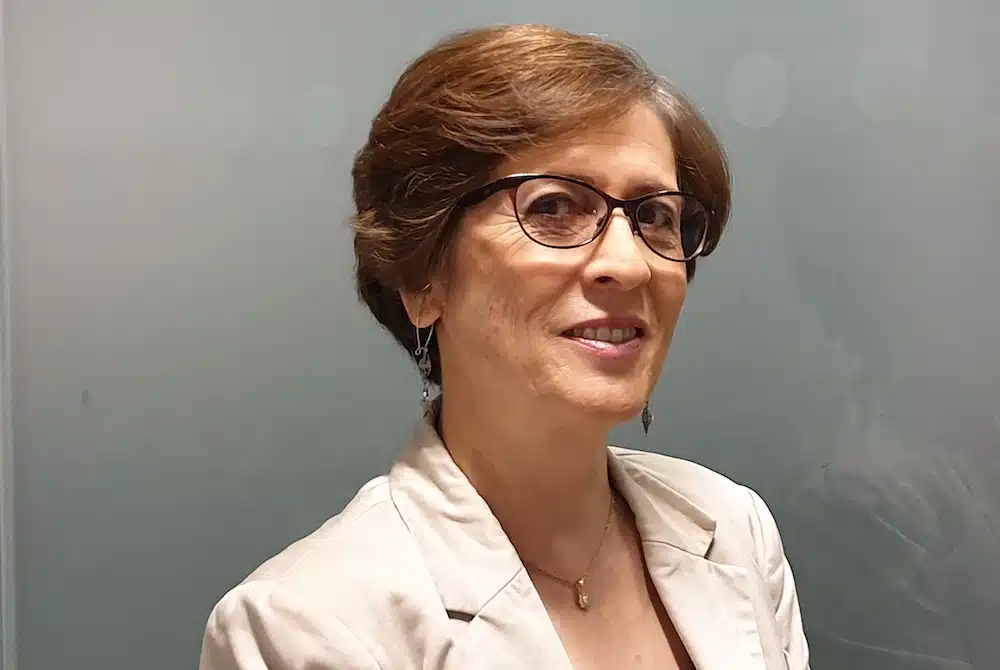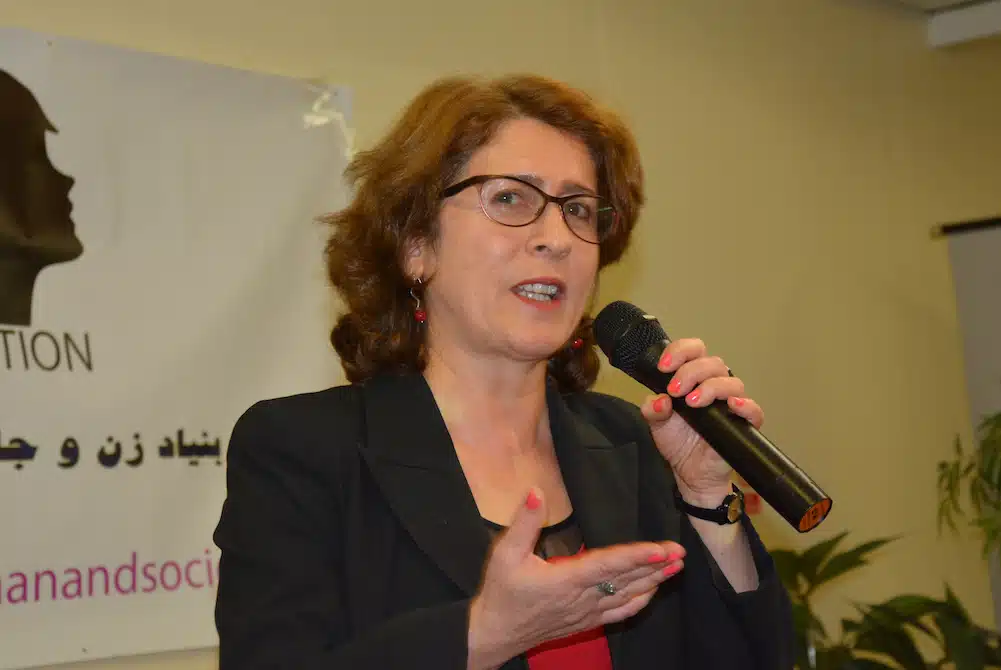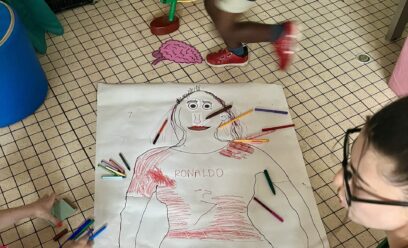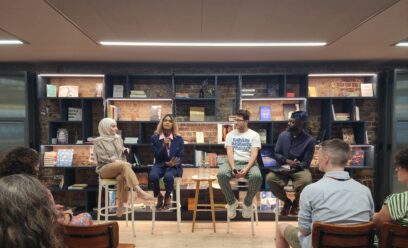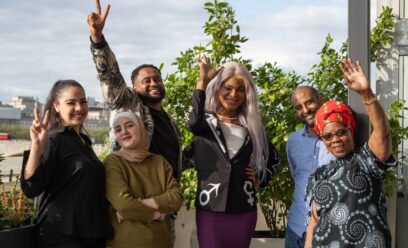International Women’s Day: ‘The pandemic made us realise that we need to unite’
Posted by IMIX on March 7, 2021Halaleh Taheri is founder and executive director of MEWSo (Middle Eastern Women and Society Organisation). She is a passionate women’s rights campaigner, activist and spokesperson particularly on issues of domestic violence. Halaleh will be appearing on a panel with the International Organization for Migration (IOM) to celebrate International Women’s Day discussing ‘The Resilience of Women During the Pandemic’ on Tuesday, 16 March. Here she shares the complexity of issues migrant women have faced during the pandemic and how MEWSo has been responding.

How has the pandemic affected women from migrant backgrounds?
Migrant women are one of the most vulnerable groups in the pandemic for many reasons. For those women caught in patriarchal cultures it is like being a second-class citizen. These migrant women know they are the weakest in the family because often they don’t have any paperwork and can’t ask for help. In this case, the husband knows that the women are vulnerable and isolated so constantly scares them by talking about deportation. They can become trapped in hell in their relationship. So for those living with a perpetrator in a pandemic, 24 hours a day, it is unbearable. Their mental and physical health has been affected. In the end, many can’t bear it so they leave but then they become homeless. But without any paperwork, their situation on the streets is hopeless.
So many times, we have been struggling for hours and hours until midnight trying to find a refuge for a homeless woman. Arguing, talking with police and social services, even with women who had children or were pregnant. The struggle to find a place for these women was unbearable. It was really tough.
It’s been worse the last year because there was a little air around for these women. Before the pandemic they could breathe, go to different places, cry on the shoulder of another woman. Now everything is closed and they are staying home all the time with the perpetrator. It gets serious and makes them very vulnerable.
Also there are many migrant women who don’t have proper access to technology. Many of them don’t have a mobile phone or can’t afford credit to make calls or use the internet. Now all services are online but connecting them to other organisations and services is so hard.

How have you been responding through your own work?
We have continued our service providing support to women experiencing domestic violence particularly in helping them to access benefits and finding housing. We coordinate with other services to ensure the protection and safety of the women we are working with. This support is often personalised and on a one-to-one basis as it is very sensitive.
Holistic support has been provided through our online classes which include mental health support, yoga, mindfulness, arts and crafts and conversational English. The women are encouraged to share their stories, to talk about their emotions and how to help each other. We also run sessions about knowing your rights which is really important so the women can start to realise the rights they and their children have in the UK. There are Q&A times when the women can ask questions to the solicitors who we work with.
Recently we have been fighting fake news from different angles which is coming from the community. We have been working closely with the NHS and have invited many clinical experts to talk about the pandemic and to help them stay up-to-date with the latest information. We have also got specific guidance translated when necessary.
We spent a huge amount of hours from the beginning of last March to help the women get online so they knew how to download Zoom and connect. We even now have an IT class and some of the participants are over 75! One of the good things about the pandemic has been getting more migrant women online.
In some domestic violence cases, we provided phones, internet connection or tablets to women and their children. When they were able to connect with our sessions, they saw so many other women with similar stories, the same lives. It gave them a lot of confidence. It was a gift.
One of the powerful things about MEWSo is that whenever we give support to women, they feel so empowered. Many ask how to help and give back to the community. We have clients who have become advisors, facilitators and trustees of our organisation. That is one of our successes.
What do you think are the main things we need to do to create a better society for women from migrant backgrounds?
We are part of the Step Up Migrant Women coalition fighting to amend the Domestic Violence Bill currently going through parliament. Currently migrant women are left out of the bill and their protection is not guaranteed. They should be treated equally like any other citizen – this abuse, and discrimination against these women is happening in our country, in our neighbourhood. So how can we say that we have a healthy society, while a percentage of women are living in hell?
It’s also important to tell wider society what is happening in part of the community. We shouldn’t be quiet about that. Silence is a part of abuse. When we talk openly about it, we can get the support of many, many people.
Have you seen anything positive come out of the last year?
Organisations working with migrant women started to find each other, unite, network and partner together, to show solidarity for each other. As a result the voice of migrant people, vulnerable people, the voice of women experiencing domestic violence is going higher and higher in the media. So now more people have heard about and support these issues.
Through the Black Lives Matter movement, many women also showed solidarity to others. Black Lives Matter also supported the issues migrants face. I was in a debate with one member of Black Lives Matter and I was representing minority communities and we were talking about the same problems. We are in the same boat and they need the same support from the whole of society.
The pandemic pushed us to realise that we can’t just act as a single group, we need to unite. Solidarity is really important. A bigger group, a bigger network we can be heard more, we can push decision-makers and politicians to react.
How will you be marking International Women’s Day?
I have been invited for a few seminars and conferences in the UK and internationally. We are asking every woman activist or woman in our network to talk about their story. Every week we will have a new video featuring different women sharing. We will also have a party for around 150 women and encourage everyone to speak for a few minutes. We will also have a few special seminars focusing on women’s stories and their voice. International Women’s Day is a day for women to speak up, whatever they want to say and speak from the heart.
We are also continuing our important campaigns on banning virginity tests, polygamy and the Domestic Violence Bill.
Do you have any words of inspiration for women on IWD?
I believe that stamina and resilience is really important, and is the core of the big change women need to rebuild their lives. Luckily women have all these elements naturally, so they can rebuild their lives. The powerful, natural element in womanhood is the resilience they have. They have stamina and resistance in themselves. That is enough to change their lives for better.

